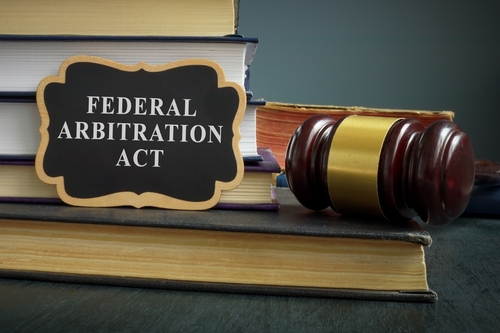The Federal Arbitration Act (FAA) favors the enforcement of arbitration agreements, but employers can’t wait too long to compel arbitration. Courts often apply a contract “waiver” rule if employers sit on their rights too long (meaning the court finds a party waived its right to arbitrate if it failed to start the process soon enough). But some courts were applying a special rule requiring an additional demonstration that one party suffered prejudice (or harm) when the other didn’t compel arbitration soon enough. But is a showing of prejudice really necessary? The U.S. Supreme Court says no.
Facts
When a fast-food franchise hired Robyn Morgan, she signed an agreement pledging to arbitrate any employment dispute. Later she filed a nationwide collective action arguing the employer had violated the Fair Labor Standards Act’s (FLSA) overtime rules. The parties engaged in litigation and attended an unsuccessful mediation.
Throughout the discussions, Morgan’s employer never mentioned the arbitration agreement. Almost eight months after the lawsuit was filed, the company finally asked the court to stay (or suspend) the litigation and compel arbitration under the FAA. Morgan argued the employer had waived the right to compel arbitration because it waited too long.
Nine of the federal appellate courts have analyzed the waiver of arbitration agreements under an arbitration-specific rule requiring prejudice, not under the normal contract law rules for waivers. Under the latter, a party waives its right to arbitrate if it knew of the right and acted inconsistently with it. Notably, no showing of prejudice to any party is necessary. But, when it came to arbitration, most of the appellate courts required litigants like Morgan to also show they would be harmed by their employer’s delay in compelling arbitration and participating in litigation instead.
Supreme Court’s Ruling
The Supreme Court heard Morgan’s case to decide the narrow issue of whether courts (1) could use an arbitration-specific waiver rule or (2) should proceed under the normal contract waiver rules. While the FAA aims at favoring the enforcement of arbitration agreements, federal policy is to analyze arbitration agreements under the law of contracts.
The Supreme Court decided “a court must hold a party to its arbitration contract just as the court would to any other kind.” Courts cannot make arbitration-specific rules inconsistent with federal law simply based on the FAA’s policy favoring arbitration.
The federal law for waivers is clear: The only necessary showing is the “intentional relinquishment or abandonment of a known right.” Instead of looking at whether Morgan would be prejudiced by forced arbitration happening so far into the litigation, the lower court should have looked at only whether the employer waived its known right to arbitrate by acting inconsistently with the agreement.
Moving forward, if federal contract law would prevent enforcing an arbitration agreement despite the FAA’s policy favoring the process, “so be it.” Morgan v. Sundance, Inc., No 21-328, 596 U.S. __ (May 23, 2022).
Lesson Learned
Employers should consult with their attorneys at the very outset of a lawsuit when the claim is subject to an arbitration provision and decide whether they want to resolve the claim in an arbitration or a court setting. If you prefer to arbitrate the case, you need to move to compel the process at the case’s outset rather than participate in litigation for months on end before making the decision.
Morgan Geffre is an attorney with the law firm of Foulston Siefkin LLP in Wichita, Kansas. You can reach her at mgeffre@foulston.com.

